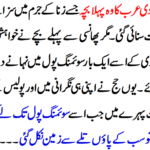Zinc is an essential mineral that plays a critical role in many bodily functions, including immune response, wound healing, and cell growth. While severe zinc deficiency is rare, mild to moderate deficiency is more common and often goes unnoticed because its symptoms can be subtle or mistaken for other health issues. In this article, we’ll explore the hidden signs and symptoms of zinc deficiency, and how to address it through diet and supplementation.
1. Weakened Immune System
Overview:
Zinc is crucial for immune function, and a deficiency can leave you more susceptible to infections. People with low zinc levels may experience more frequent colds, flu, and other illnesses.
Symptoms:
- Frequent Infections: You may catch colds or other infections more often than usual.
- Slow Recovery: Wounds, cuts, and scrapes may take longer to heal, indicating a weakened immune response.
Solution:
Consume zinc-rich foods like oysters, beef, pumpkin seeds, and chickpeas, or consider zinc supplements if needed.
2. Hair Loss


Overview:
Hair loss is a common symptom of zinc deficiency. Zinc plays a role in hair tissue growth and repair, and its deficiency can cause hair to thin or fall out.
Symptoms:
- Thinning Hair: Noticeable thinning of hair, particularly at the crown or hairline.
- Brittle Hair: Hair may become dry and break easily due to a lack of zinc.
Solution:
Increase your intake of zinc-rich foods such as spinach, lentils, and cashews. You can also consult with a healthcare provider about zinc supplements if hair loss persists.
3. Loss of Taste or Smell
Overview:
Zinc is vital for the senses of taste and smell. If you’re deficient in zinc, you may notice a reduction in your ability to taste or smell food as strongly as you used to.
Symptoms:
- Dull Taste: Food may taste bland or less flavorful.
- Reduced Smell: Your sense of smell may be less sharp or diminished.
Solution:
Incorporate more zinc-containing foods like whole grains, dairy, and shellfish into your diet. Supplements may be necessary if the deficiency is severe.
4. Skin Problems
Overview:
Zinc is essential for maintaining healthy skin. A deficiency can lead to a range of skin problems, including rashes, acne, and dry, flaky patches.
Symptoms:
- Dry Skin: Your skin may become dry, rough, or prone to peeling.
- Acne: Persistent or worsening acne can be a sign of zinc deficiency.
Solution:
Topical zinc creams can help, but the best approach is to address the deficiency through diet or supplements. Foods like eggs, fortified cereals, and seeds can help increase zinc levels.
5. Mood Changes and Depression
Overview:
Zinc plays a role in brain function and mental health. A deficiency may contribute to mood disorders, including depression and anxiety.
Symptoms:
- Depression: Feelings of sadness, hopelessness, or a lack of motivation may increase.
- Irritability: You may feel more irritable or anxious than usual.
Solution:
In addition to therapy or medications, increasing your zinc intake can help improve mood and cognitive function. Zinc-rich foods and supplements may provide relief.
6. Cognitive Impairment
Overview:
Zinc is crucial for brain function, and a deficiency can impair cognitive abilities such as memory, concentration, and learning.
Symptoms:
- Memory Problems: You may find it harder to remember things or stay focused.
- Brain Fog: A feeling of mental cloudiness or confusion can occur with low zinc levels.
Solution:
Boost your cognitive health by eating more zinc-rich foods, including meat, seafood, and legumes. Supplements may also help if dietary intake is insufficient.
7. Poor Wound Healing
Overview:
Zinc is essential for tissue repair and skin health, so a deficiency can lead to slow wound healing. If you notice that cuts, scrapes, or other injuries are taking longer to heal than usual, you may need more zinc.
Symptoms:
- Delayed Healing: Minor wounds or injuries may take weeks to heal instead of days.
- Recurring Infections: Wounds may become infected more easily due to impaired immune function.
Solution:
Incorporate more zinc-rich foods like red meat, seeds, and nuts into your diet, or consider a zinc supplement if your wounds are healing too slowly.
8. Diarrhea
Overview:
Zinc plays a role in maintaining a healthy digestive system. A deficiency can lead to chronic diarrhea, especially in children and those with compromised immune systems.
Symptoms:
- Frequent Diarrhea: Loose or watery stools that occur regularly can be a sign of zinc deficiency.
- Dehydration: Chronic diarrhea can lead to dehydration and loss of essential nutrients.
Solution:
Seek medical advice if diarrhea persists. Along with medical treatment, adding zinc-rich foods to your diet can help restore balance in your digestive system.
9. Loss of Appetite
Overview:
Zinc is involved in appetite regulation, and a deficiency can lead to a reduced desire to eat. Over time, this can contribute to weight loss and malnutrition.
Symptoms:
- Reduced Appetite: You may feel less hungry or disinterested in eating.
- Weight Loss: Unexplained weight loss can occur due to a lack of zinc.
Solution:
Increase your zinc intake by eating more nuts, seeds, and seafood. A zinc supplement may also help restore your appetite.
10. White Spots on Nails
Overview:
White spots or lines on your nails can be a subtle sign of zinc deficiency. This occurs when your body lacks the nutrients needed for proper nail growth.
Symptoms:
- White Spots: Small white spots or lines may appear on your nails.
- Brittle Nails: Your nails may also become brittle and prone to breaking.
Solution:
Include more zinc-rich foods in your diet, like beef, poultry, and beans. Nail-strengthening treatments may help, but addressing the underlying deficiency is key.
Conclusion
Zinc deficiency can manifest in a variety of subtle ways, from weakened immunity to mood changes and skin problems. If you recognize any of these hidden signs, it may be time to assess your zinc intake. By incorporating more zinc-rich foods into your diet or considering supplementation, you can help restore your zinc levels and improve your overall health. Always consult with a healthcare provider before starting any new supplement regimen, especially if you suspect a deficiency.







